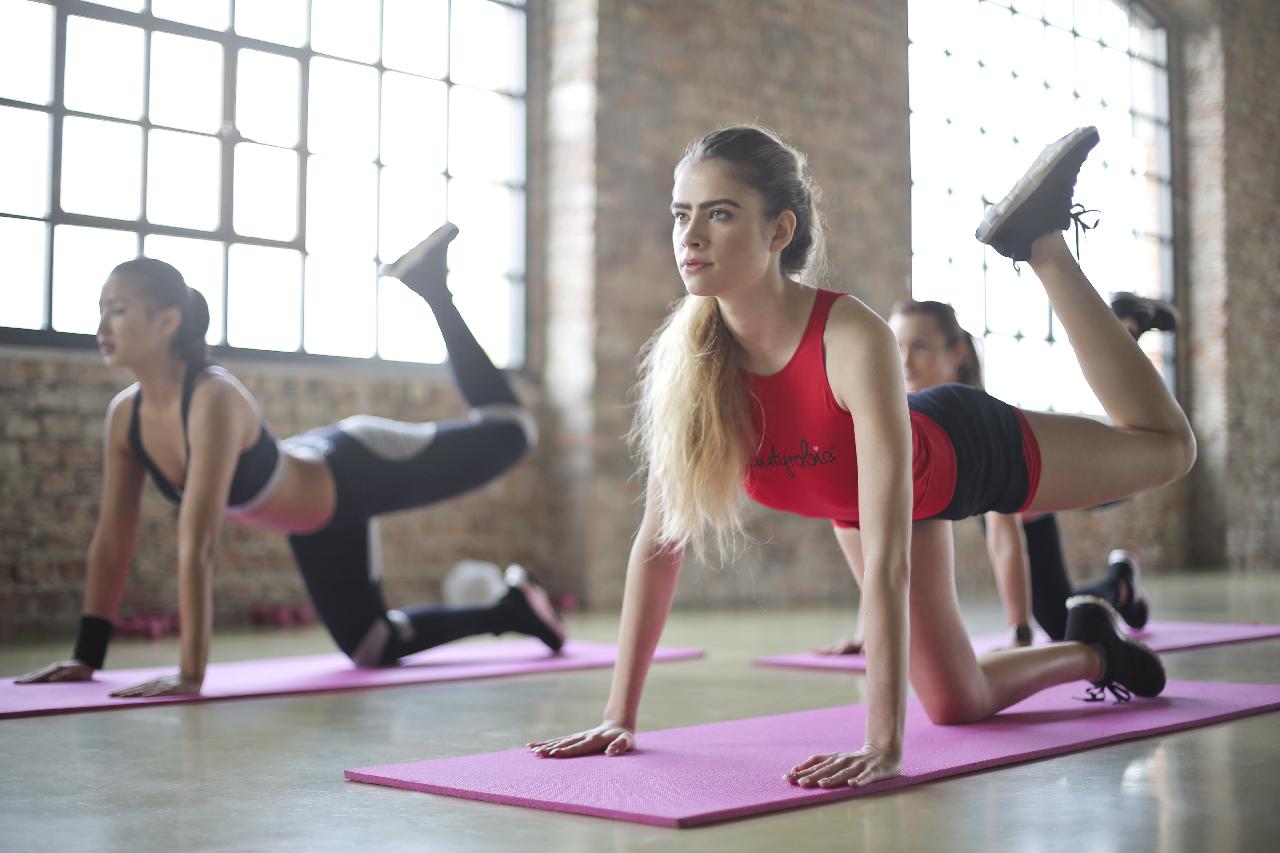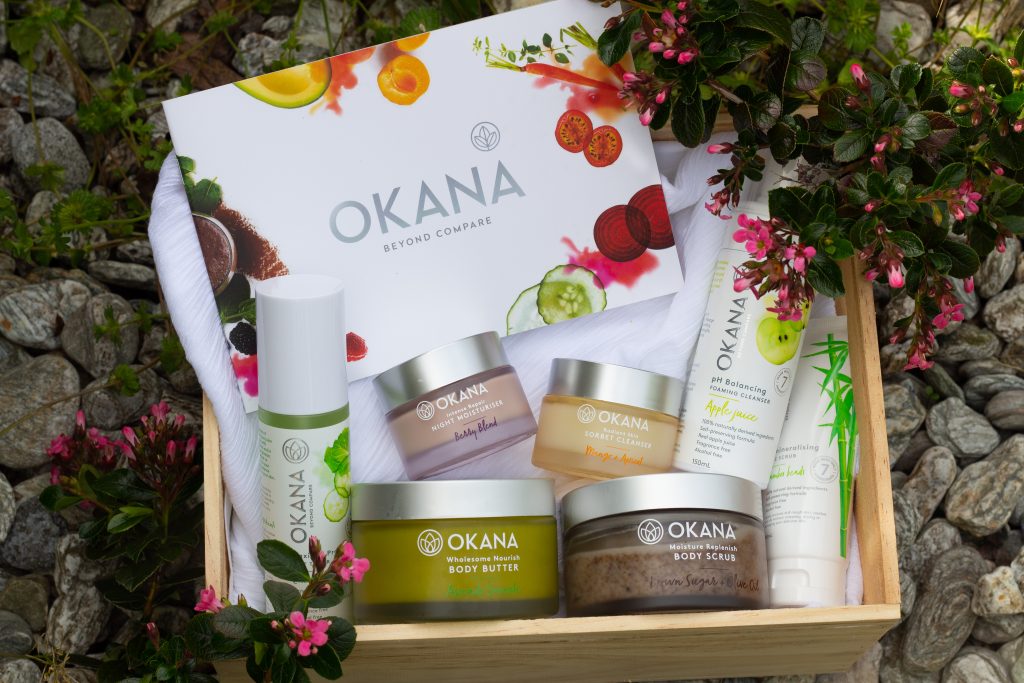
Skin fitness for gym junkies, hot yogis and runners

What’s the best approach for keeping your skin as fit as your body while you indulge your daily fitness addiction? Exercise is excellent for your skin, just as it’s good for your all-round health, but it comes with a few risks that you need to be aware of.
Working out gets your heart rate up, so it improves blood circulation. And that’s why exercise is so good for your skin. All that fast-moving blood running around your body delivers extra oxygen and nutrients to your skin, which keep it healthy, promote collagen production and encourage faster skin cell turnover.
Exercise also makes you sweat, which helps to clean out your pores and give you a gorgeous, dewy, post-workout glow. This glow can last for several hours, so a late afternoon workout or hot yoga session sets you up for looking fabulous in the evening.
All these benefits are enough to make even the most committed couch potato think about pulling on some running shoes and taking to the streets. However exercise does present a few challenges that need to be managed. Here’s what we mean:
Risk 1: Clogged pores, because you’re working out in a full face of makeup
There’s a strong case for only working out with a clean face, even if you want to look glamorous for your pump or zumba class. When you exercise, sweat is produced by tiny glands that push salt water out your skin’s pores to cool your body down. But when you load your skin up with primer, foundation, setting powder and bronzer, you are covering your pores and making it harder for sweat to escape. What’s even worse is that when the pores do open, the makeup and sebum on the surface mixes up and fills them. So working out in full makeup can be a recipe for skin disaster.
Another side effect of not letting your skin breathe properly during exercise is miliaria profunda, also called heat rash or sweat rash. These little red bumps indicate obstructed sweat glands. Men are more likely to get miliaria profunda, but women can get it too. [1] It’s not to be confused with ‘jock itch’, which is a fungal condition.
Risk 2: Sensitive skin, because you’re adding a third cleanse to your day
If you exercise in the middle of the day and remove your makeup first, you’re adding an extra cleanse to your routine. Over-cleansing your skin comes with a risk of disturbing your skin’s barrier function, leading to dry, sensitive skin that looks inflamed.
Cleansing three times a day can also make acne worse, because it upsets your skin’s pH and makes it easier for acne bacteria to flourish.
Risk 3: UV exposure, because you prefer to exercise outside
Walking, biking, hiking and running outside are good for your soul as well as your body. They help to lift your mood, relieve anxiety and improve sleep. [2] But outdoor athletes have a higher-than-normal skin cancer risk, because they get a regular dose of ultraviolet (UV) radiation. Hyper-pigmentation is another risk of regular UV exposure; as you get older this looks less like a tan and more like a motley discolouration. Summer and autumn are the most dangerous months for UV.
Strategies for avoiding exercise-associated skin problems
The last thing you want to do is give up exercise, because it’s the proven path to better overall health.[3] Our experience is that it’s perfectly possible to be an exercise-freak and have perfect skin too; you just need to embed a few good habits.
Always exercise with clean skin
Let your pores run freely while you’re exercising by removing makeup before you start. We recommend our oil-based cleanser, because it does a spectacular job of dissolving foundation, blusher, powder and eye makeup.
If you like to exercise at lunchtime, avoid over-cleansing by washing your face with plain water when you wake, followed by your usual toner and moisturiser routine. Over-cleansing (three or more times a day) could turn out to be just as problematical as exercising with a full face of makeup.
Add sunscreen if you’re exercising outside
For outdoor running, biking and walking, apply a mineral sunscreen to your clean face before exercising. Don’t forget your neck, décolletage and arms, if they’re not covered. We recommend a mineral sunscreen, because chemical sunscreens often contain hormone disruptors, such as oxybenzone.[4] Look for a formula that feels light and check the label to see how long it will last. For all-day adventures, you’ll need to reapply from time to time.
Rinse, tone and moisturise immediately after exercise
After exercise, it’s essential to rinse away the sweat before toning and moisturising. This is especially important if you’re inclined to break out.
Drink lots of water during and after exercise
Every drop of sweat needs to be replaced, and then some. If you’re exercising for more than 30 minutes, take a water bottle with you. Make sure you keep drinking water after your workout - don’t wait until you feel thirsty. A smart strategy is to weigh yourself before and after your workout. The golden rule is to drink 500 mls of fluid for every 500 grams you’ve lost.
Sources:
[1] https://dermnetnz.org/topics/miliaria/
[2] https://www.betterhealth.vic.gov.au/health/HealthyLiving/exercise-and-mood
[3] https://www.health.harvard.edu/healthbeat/the-secret-to-better-health-exercise
[4] https://www.ewg.org/sunscreen/report/the-trouble-with-sunscreen-chemicals/




Leave a comment
This site is protected by hCaptcha and the hCaptcha Privacy Policy and Terms of Service apply.